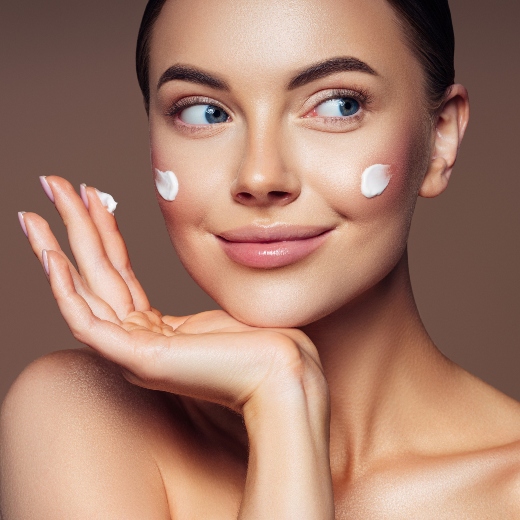We all know how important moisturizing is in keeping the skin’s healthy glow. That’s why so many products are manufactured and sold in the market to help maintain your skin’s vibrancy and hydration.
But probably like many individuals, you have been confronted as well with the difference between cream and lotion. Which is better? Does the difference matter?
Cream versus lotion, which would you choose? While both have the same purpose, there actually exists a thin line separating the two – particularly their composition. Here we will tackle the difference between cream and lotion to help you choose the best product that would suit your needs.
But first, What is a Moisturizer?
Moisturizers have long played a significant role in the fields of dermatology. These products are the key player in anti-aging regimens and are identified as core components in maintaining healthy skin barrier function.1 Moisturizer keeps the skin smooth and soft and helps deliver active ingredients like botanical antioxidants, peptides, skin-lightening agents, and exfoliants to the skin.2
Lotion vs Cream: What Are the Differences?
The difference between cream and lotion actually lies in their respective composition. At the most basic level, lotions have higher water content. Lotions are usually made of water with some oil, actives, and wax. Because of this, lotions are lighter than cream and are non-greasy. They are easy to spread and quick to absorb.
However, due to its composition, the molecules in lotions are quite larger that’s why they can only reach the upper layers of the skin and not penetrate through. Nonetheless, the wax content of lotion serves as a barrier between the skin and the elements to help it seal in water; thereby keeping the skin moisturized.
On the other hand, the cream contains an equal amount of oil and water (sometimes, with higher oil concentration). Because of this composition, creams are thicker in consistency and provide a barrier that can help the skin stay ultra-hydrated. Compared to lotions, creams’ thickness can penetrate more deeply into the skin. This is also the reason why creams are often placed in tubs instead of bottles with pumps.
Which is Better: Lotion or Cream?
The answer to this question actually depends on your skin type. Now that you know the difference between these two, in terms of content, it’s easier to see which would suit best to specific skin type. Say, for example, those who are suffering from acne may consider lotion over cream because it has low oil content, is light, and gets absorbed quickly.
Also, perhaps can consider as well your skin goals. Look into the ingredients of each product and see which one would resonate with what you would like your skin to look like. Would you want it to have anti-aging properties or just something that can help moisturize your skin?
Lastly, note climate should also be a factor when choosing between lotion and cream. Given the summer heat, lotion’s lightweight characteristic can be of great use to combat skin dehydration and humidity. As for winter, cream’s thick and oily component can probably add an extra barrier to the skin to trap the skin’s natural moisture.
Where to Buy the Best Lotion and Cream?
Now that you’ve learned the uses, benefits, and differences between cream and lotion, you may be thinking at this moment of the most important question: where to buy the best lotion and cream? What company can manufacture the specific things that you would want your lotion and cream to contain?
Look no further because The Omnium Group is more than capable of producing lotions and creams that are paraben-free, gluten-free, vegan, no petrochemicals, no synthetic compounds, no perfumes, and with magnesium that are naturally sourced from the Dead Sea.
We are the best manufacturer and private label company in Riverside and San Bernardino Valley, California known for providing unparalleled services and products – from natural skincare, hair and body care, cosmetics, and OTC products. Our facilities in Hauppauge, New York, Apex, North Carolina, and Huntington Beach, California are all FDA-registered.
If you are interested in adding lotions and creams to your brand, don’t hesitate to contact us now so we may discuss how we can put into reality your ideas for your skincare products.
References:
1 Lee C, Bajor J, Moaddel T, Subramanian V, Lee JM, Marrero D, Rocha S, Tharp MD. Principles of Moisturizer Product Design. J Drugs Dermatol. 2019 Jan 1;18(1s):s89-95. PMID: 30681817.
2 Draelos ZD. The science behind skin care: Moisturizers. J Cosmet Dermatol. 2018 Apr;17(2):138-144. doi: 10.1111/jocd.12490. Epub 2018 Jan 10. PMID: 29319217.
